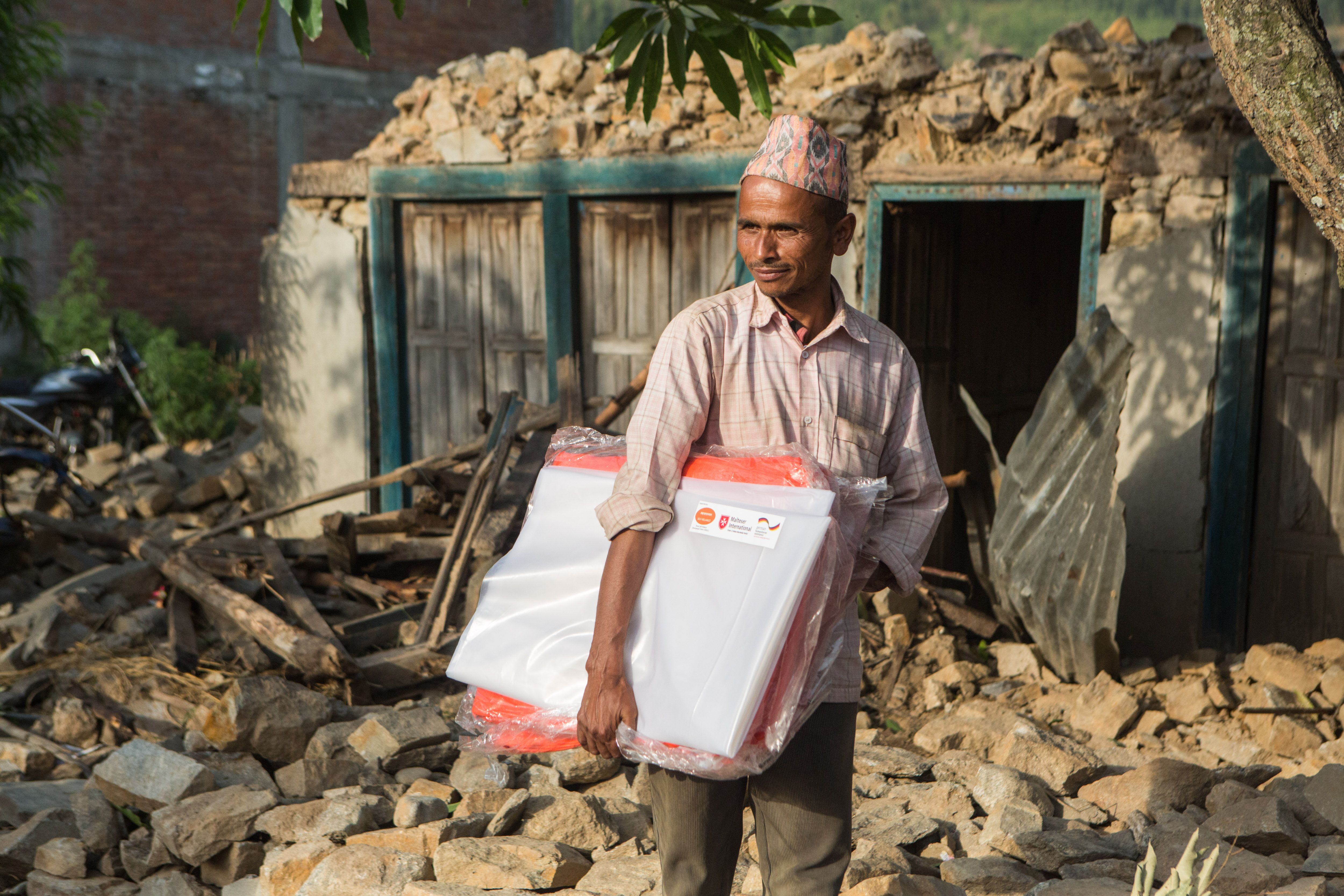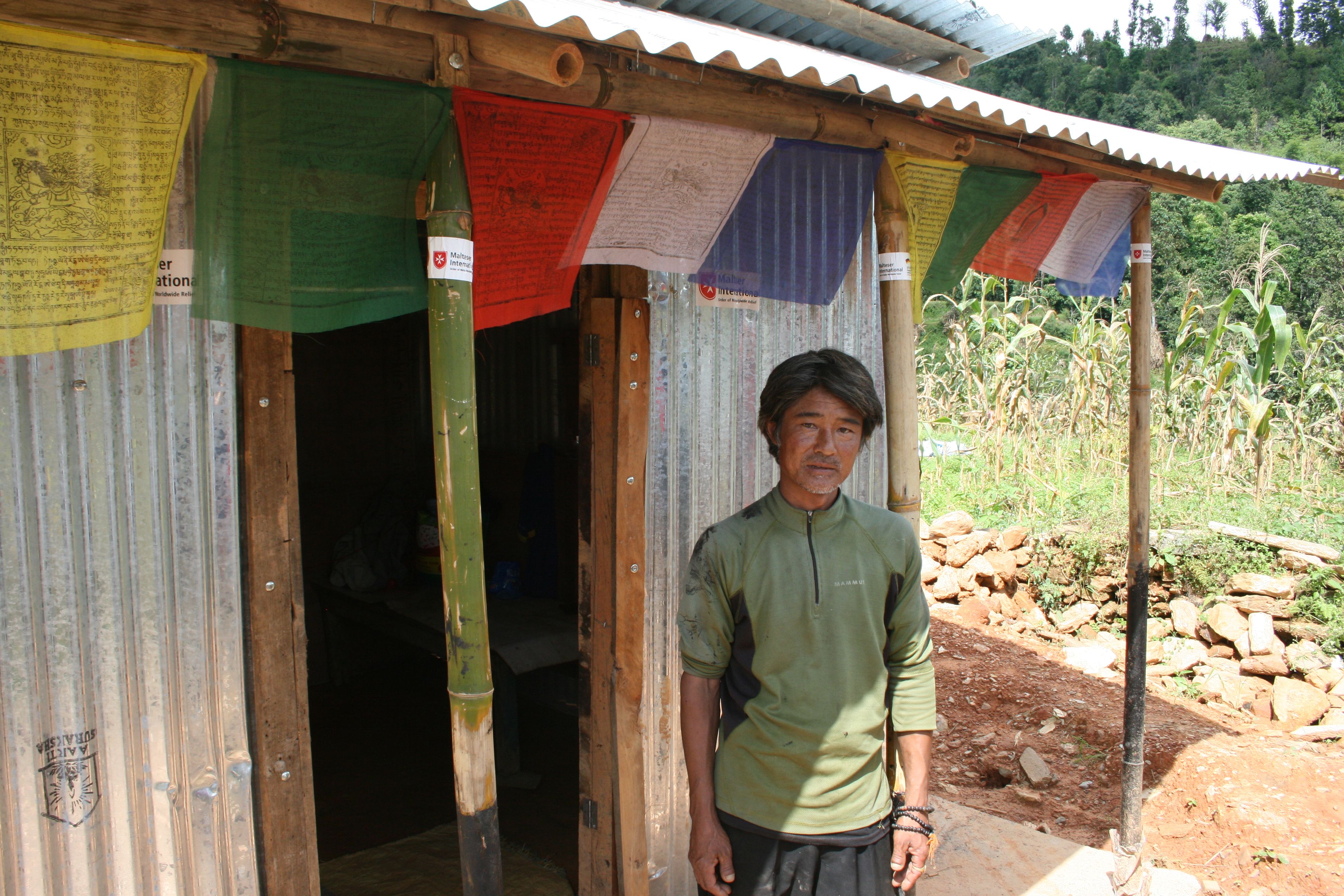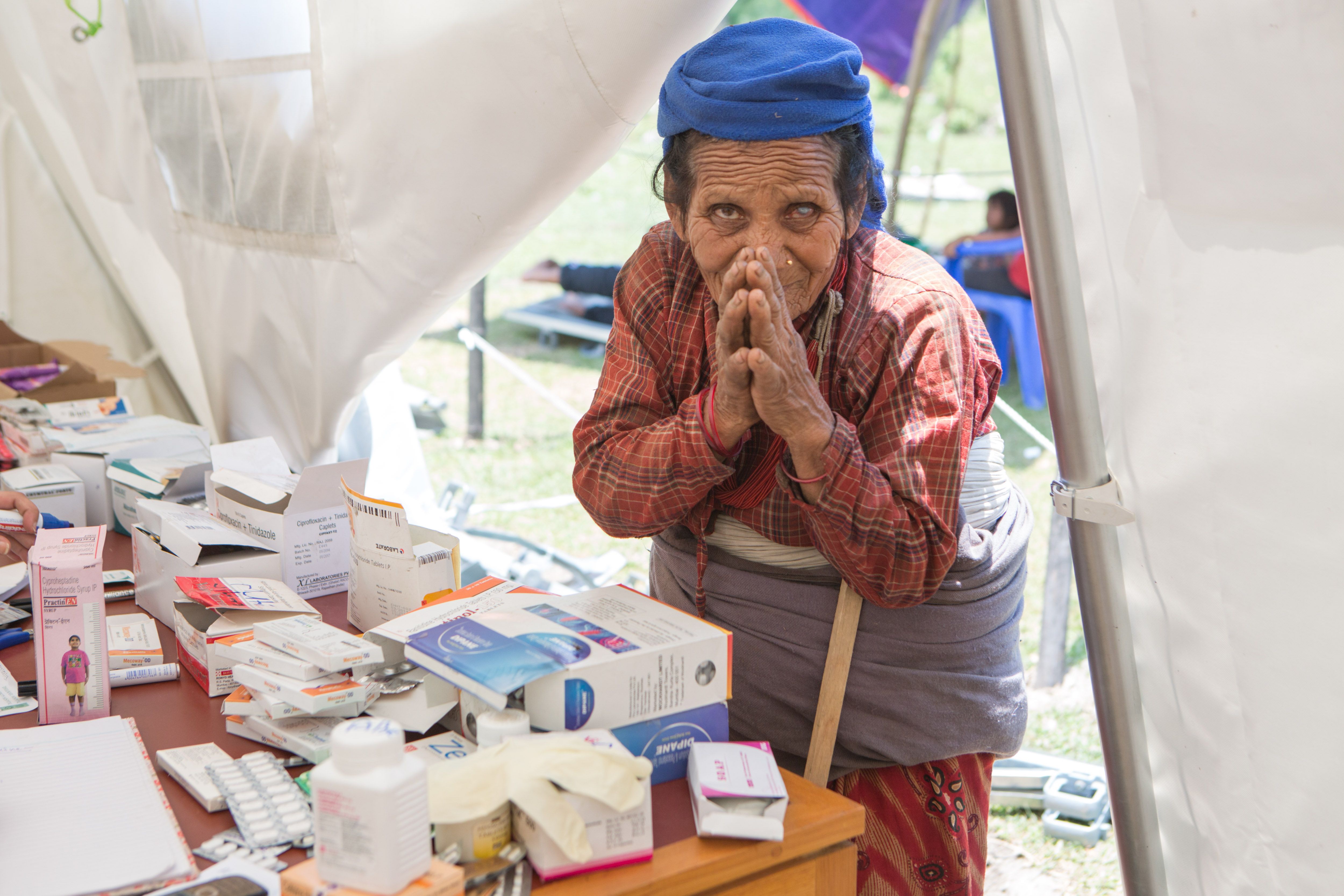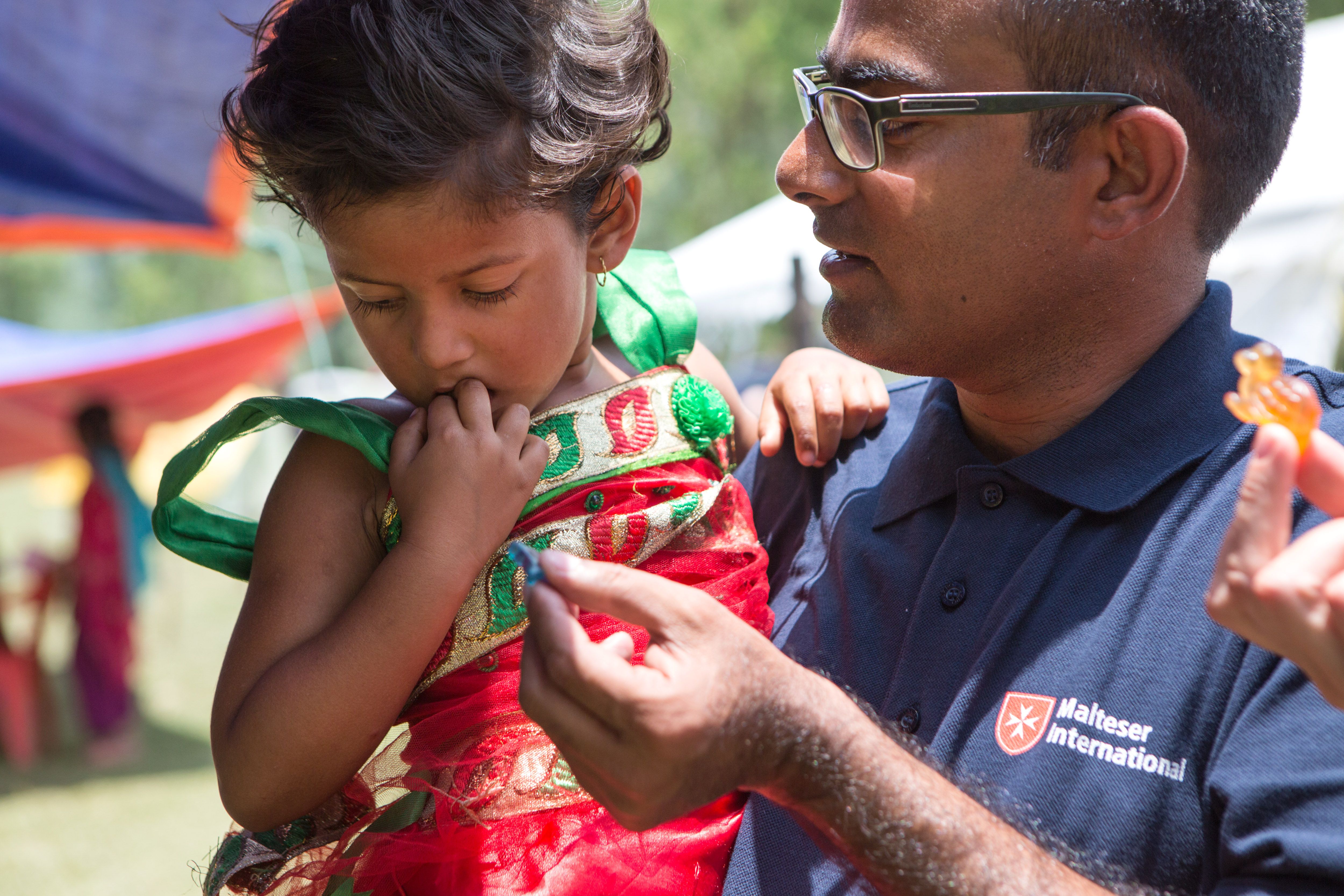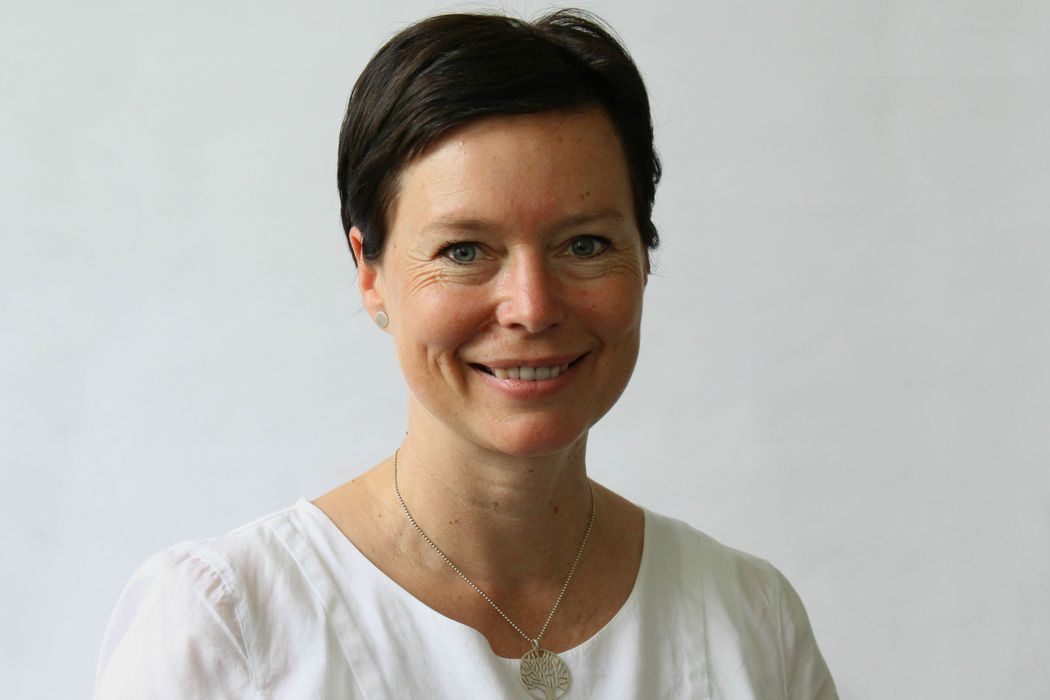Cologne: Nepal will need several more years of intensive international aid in order to make a full recovery. As a first step in this process, Malteser International is developing a comprehensive rebuilding program for the coming three years. As well as the reconstruction of houses, its focus will be on providing health, clean water, and protection from future disasters. “Nepal is the poorest country in South Asia. The people in the mountain regions especially, where in some cases almost 95 per cent of all houses were destroyed, have little or no money to make a new beginning. They are still living in tents and temporary shelters, with extremely limited facilities,” said Arno Coerver, Malteser International’s Country Coordinator in Nepal.
Malteser International will continue working in the districts of Sindhupalchok, Kavre and Nuwakot – north and east of Kathmandu, where it is planning to build three health posts in remote and isolated areas. One of these will be a bricks and mortar replacement for the tent-based Basic Health Unit, or BHU, that the organization established at Lamosanghu, near to the Chinese border, in cooperation with the Kathmandu University teaching hospital at Dhulikhel. “Since the earthquake, the BHU has treated almost 9,000 patients, and it has become an indispensable asset to the local community,” said Coerver. “Immediately after the earthquake, we were treating patients with injuries, or sicknesses caused by the disaster and its effects, and the people are still coming to us with their problems even now.”
The mental trauma caused by the earthquake continues to be amongst the most serious of these problems. “As a rule, between 30-50 per cent of the people affected by a disaster like this suffer from psychological distress. Official estimates suggest that less than a third of those people suffering from trauma in Nepal have received psychological help,” said Arno Coerver.
In cooperation with its local partners RSDC and Kathmandu University, Malteser International has helped more than 92,000 people to make a new beginning after the earthquake. More than 70,000 people have received aid material including food, hygiene kits, and tarpaulins, as well as winter relief material like clothing, stoves and insulation material. Almost 12,000 people have been able to build temporary shelters using building material like tarpaulins, ropes and groundsheets, provided by Malteser International, while around 800 people without the ability to build a shelter for themselves – including the old and the sick – received a new temporary house constructed by Malteser International from bamboo, timber and corrugated metal.
Malteser International has been active in Nepal since 2012. Its staff were en route to the disaster zone within hours of the devastating earthquake on April 25th 2015, which cost 8,699 people their lives, wounded more than 22,000 and left around 2.8 million homeless. Malteser International's relief in Nepal was financed by the German Foreign Office, Nachbar in Not - Austria's Relief Coalition, and numerous other private and public donors.
For editors: Arno Coerver, Malteser International’s Country Coordinator in Nepal, is available for interviews.
Contact: Tel.: +49 (0)221 9822 169, petra.ipp(at)malteser-international.org
Further image material is available for download here (please credit ADH/Schamberger)
You can see short films and find more information about our work in Nepal here.
Free-to-use film footage is available for download here.
Malteser International is continuing to call for further donations to support its work in Nepal

